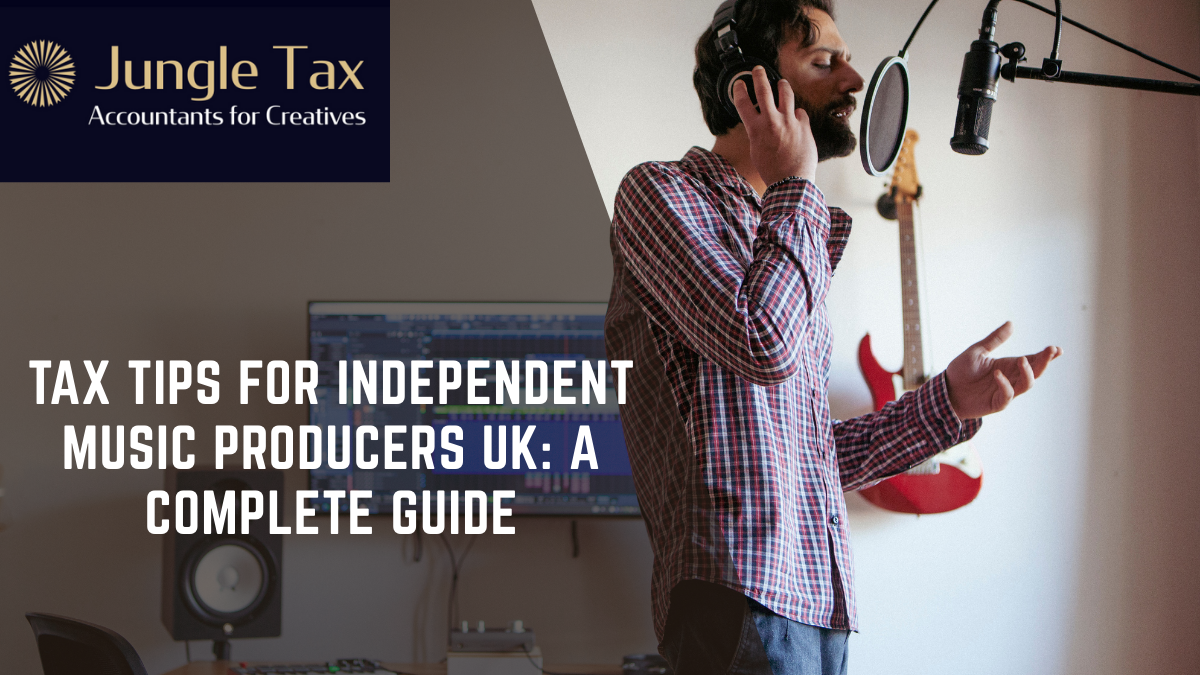
Introduction
The UK music industry thrives on creativity, innovation, and independent talent. However, behind every hit track lies the responsibility of proper financial management. Tax tips for independent music producers in the UK not only help protect hard-earned income but also keep producers compliant with HMRC regulations. Whether you produce tracks for artists, license beats online, or manage your own label, tax planning plays a vital role in your success.
Many producers struggle with balancing creativity and business. By understanding tax rules, you secure your finances, claim every allowable deduction, and prepare for sustainable growth. With the proper guidance, you keep more of your earnings and invest back into your music career.
Why Independent Music Producers Need Tax Guidance
Music producers often manage multiple income streams, from royalties to session work and licensing. Each income source comes with different tax obligations. Without structure, independent producers risk overpaying taxes, missing filing deadlines, or losing deductions.
When you follow expert guidance on music producer tax advice, you:
- Track every source of income, including royalties, sync licensing, and digital sales.
- Claim allowable business expenses such as studio equipment and travel.
- Avoid penalties by filing tax returns on time.
- Plan long-term financial strategies to grow your brand.
A strong accounting strategy lets you focus on music instead of worrying about HMRC rules.
Understanding UK Music Industry Taxes
In the UK, HMRC views independent producers as self-employed professionals. This means you must register for self-assessment and file annual tax returns. Unlike salaried employees, you are responsible for calculating, reporting, and paying your own tax.
Key obligations include:
- Paying income tax on all business earnings.
- Making national insurance contributions if your income reaches certain levels.
- Declaring income from both UK and international sources.
- If your turnover exceeds the VAT threshold, you must register for VAT.
When you know the basics of UK music industry taxes, you prevent tax surprises and manage your finances more effectively.
Familiar Income Sources for Music Producers
Independent producers often earn from:
- Beat licensing and online sales.
- Royalties from streaming platforms.
- Session recording and mixing services.
- Teaching or offering production courses.
- Merchandise sales and live events.
Each of these income streams must be declared to HMRC. Accountants simplify the process by consolidating income and ensuring accurate reporting.
Allowable Expenses for Producers
Maximising deductions is one of the best ways to lower taxable income. Producers can claim:
- Studio rent and utilities.
- Recording equipment such as microphones, mixers, and software.
- Marketing and promotional costs.
- Travel expenses for gigs, studio sessions, or collaborations.
- Professional fees, including accountants or legal services.
By keeping detailed records, you reduce your overall tax bill while staying fully compliant.
Record-Keeping Made Simple
Good records protect you during audits and help you claim all eligible expenses. HMRC requires producers to keep financial records for at least five years.
Maintain:
- Invoices from clients.
- Receipts for studio gear and travel.
- Contracts for royalties and collaborations.
- Bank statements showing income deposits.
Cloud-based accounting tools make this process efficient, while specialist accountants ensure everything is filed correctly.
International Earnings and Royalties
Many independent producers collaborate globally, earning royalties from international platforms. You run the danger of paying taxes twice on the same income if you don’t get counsel.
Here, music producer tax advice plays an important role. To ensure conformity with both UK and global tax regulations, accountants apply treaty benefits and foreign tax relief. This allows you to keep a greater share of your overseas earnings.
VAT and the Music Business
You might surpass the VAT threshold as your career progresses. Registering for VAT adds complexity, but it also provides opportunities to reclaim VAT on business expenses. Producers selling beats, merchandise, or digital products must handle VAT correctly to avoid penalties. With professional support, you meet HMRC requirements while protecting your margins.
Scaling Your Music Career with Accounting
Sound financial management supports career growth. By working with accountants, independent producers can:
- Transition from self-employed to limited company structures for tax efficiency.
- Build financial roadmaps that align with creative goals.
- Secure funding or grants by presenting professional financial statements.
- Protect wealth through tax planning and investment strategies.
Good accounting isn’t just about compliance; it’s about future-proofing your music business, ensuring your financial security and long-term success.
Why Choose JungleTax
At JungleTax, we specialise in supporting creative professionals. We understand the challenges of tax tips for independent music producers in the UK and provide tailored solutions. From royalty management to international income and VAT, we ensure you stay compliant and maximise every opportunity.
Our expertise means you:
- Save money through effective deductions.
- Stay stress-free during tax season.
- Gain clarity over all income streams.
- Focus entirely on making music.
Conclusion and Call to Action
Independent music producers drive the UK’s creative economy. However, without proper tax planning, financial challenges can limit growth. With JungleTax, you gain expert support on tax tips for independent music producers in the UK, ensuring you save money, stay compliant, and scale your career with confidence and peace of mind.


We’re simply a phone call or click away. Let’s connect.
FAQs
Yes. All income from royalties, best sales, and production services must be reported to HMRC.
You can claim studio rent, equipment, travel, marketing, and professional services.
Only if your turnover exceeds the VAT threshold, however, registering early can offer benefits.
Accountants apply foreign tax relief and treaty rules to prevent you from paying tax twice, providing you with peace of mind and financial security.
